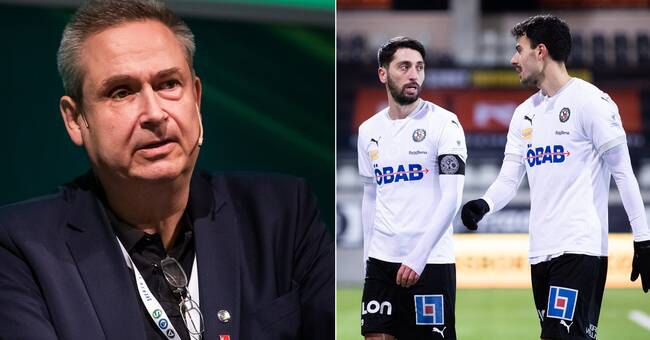This year's football season started later than planned due to the corona pandemic that broke out in Sweden in March.
Football's representatives fought a hard battle before the series got the green light to start in mid-June.
On the other hand, football never got the green light for more than 50 people in the audience at the matches - and that has meant around half a billion kronor in lost audience revenue.
- Right now we do nothing when it comes to audiences for the rest of the year.
We close down the season and lick the wounds, says Mats Enquist, Swedish Elite Football's general secretary.
Two things become extra important
The Damallsvenskan has already been played and the weekend that will end the Herrallsvenskan and the Superettan.
After that, the planning for the coming season begins, which risks being at least as tough as this year's season.
- We have to start looking towards 2021 and at some point we need to sit down in relative proximity because right now the situation is enormously acute for football.
I think everyone underestimates how this has affected us because we have managed it so far.
But now the reserves are extremely strained or even emptied, says Enquist.
Enquist says that two things will be extra important next season.
Firstly, the financial support for football must be much more proportionate to the severe closure.
More precise dialogue with the government and FHM
Secondly, the dialogue with the Public Health Authority and the government must be more precise.
- We need a more precise discussion of what can be done to have infectious events and not just rely on general sweeping formulations that eight or 50 people would prevent the spread in society.
It will be far too blunt, says Enquist.
The government has so far contributed SEK 1.5 billion to sports.
Football has been allocated SEK 287 million, of which elite football has received about half.

